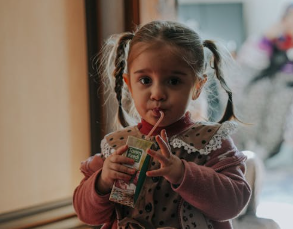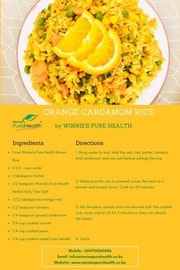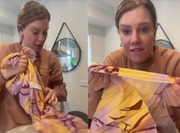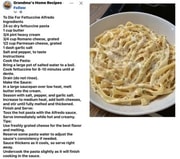
The humble soy sauce fish is swimming into history.
From lunch boxes to sushi platters, millions of Australians will soon have to say goodbye to these iconic little plastic containers.
But the changes don’t stop there—juice boxes are also getting a major makeover.
South Australia became the first place in the world to ban fish-shaped soy sauce containers on 1 September 2025, marking another bold step in the state’s fight against single-use plastics.
The decision has had immediate effects, with supermarkets nationwide swapping the plastic straws on juice boxes and mini-milk cartons for paper alternatives, after a legal loophole allowing them to remain attached was closed.
The tiny soy sauce fish may seem harmless, but each container is used for mere seconds while persisting in the environment for years.
They are easily dropped, blown away, or washed into drains, making them a common component of street and beach litter.
In kerbside recycling, they are too small to be sorted, often ending up in landfill or scattered as microplastics.
Marine animals and birds frequently mistake these plastics for food, risking ingestion, injury, or starvation, while caps and bodies can pose choking hazards.
'Each fish-shaped container is used for just seconds yet remains in the environment for years'
The statistics are stark: plastic straws, used for an average of 20 minutes, can persist for up to 600 years, with Australians discarding an estimated 10 million per day, most of which cannot be recycled.
South Australia’s action has sparked a domino effect across the country, with New South Wales banning straws on drink containers from 1 January 2025 and Victoria following from 1 January 2026.
Major supermarkets have moved quickly, with Coles and Woolworths confirming their aisles are now free of plastic straws.
Coles highlighted they are 'always looking for ways to reduce unnecessary plastic from circulation'.
For Adelaide dad Rory Noke, the changes symbolise more than environmental policy.
'I feel like South Australia has always been very pro-clean energy, pro-environment, much more so than the other states. It feels like we always do it first, and we do it when it's at its most expensive, but we do it anyway. And that always made me proud as a South Australian.'
South Australia’s plastic bans have been cumulative. Since the rollout began, businesses have removed over 15 million single-use items including straws, cutlery, cups, and takeaway packaging.
The state has methodically added new bans each September, giving businesses time to adapt.
South Australia's plastic ban timeline
2009: First Australian state to ban lightweight plastic bags
2021: Plastic straws, cutlery, and stirrers banned
2022: Polystyrene cups, bowls, and plates added
2023: Pizza savers, plastic-stemmed cotton buds banned
2024: Plastic barrier bags for fruit and vegetables, coffee cups
2025: Soy sauce fish, attached straws and cutlery, polystyrene packaging
Recent studies have added urgency to these efforts. A 2025 Lancet eBio Medicine study linked microplastic exposure to more than 350,000 deaths in one year, citing reduced sperm quality, kidney damage, and birth defects.
Microplastics harm marine life from plankton to whales, killing around 100,000 marine mammals annually and affecting all seven sea turtle species, over two-thirds of marine mammals, and 90 per cent of seabirds.
Consumers can still use plastic lollipop sticks, large soy dispensers, sachets, and coated paper cups or bowls for instant meals.
The soy fish can be replaced with bulk or refillable options, sachets, squeezable packs, or certified compostable containers.
Practical alternatives for consumers
- Carry reusable stainless steel or bamboo cutlery sets
- Request sachets or squeeze packs for condiments instead of plastic containers
- Look for wooden cutlery when dining out—it's compostable
- Say no to straws when you don't need them; choose silicone, stainless steel, or paper alternatives
Compliance is still a challenge. Dr Michelle Blewitt from the Australian Microplastic Assessment Project encountered a restaurant still using soy sauce fish.
'The lady I spoke to said, I need to use down my stock. And I said, no you can't, they're banned,' she said.
South Australians overwhelmingly support these bans, but enforcement is gradual, with fines up to $5,000, often preceded by warnings.
Environmental advocates are urging a shift towards reusable alternatives. Mel Rayner from Plastic Free South Australia said, 'It's not so much about banning more items now, it's about implementing reusables more.'
Dr Blewitt added that while paper straws are 'a great start,' the plastic sleeves attaching them are 'just as bad' as they are lightweight, can fly around, and children are unlikely to recycle them properly.
South Australia’s leadership continues to inspire nationwide action, dovetailing with global efforts such as the push for a legally binding plastics treaty.
For older Australians doing the weekly shop, the changes in lunch box aisles are immediate and noticeable.
Paper straws may be slightly less convenient, but manufacturers have improved their durability, offering a small compromise for a healthier planet.
Did you know?
South Australia leads the way South Australia was the first Australian state to ban lightweight plastic bags in 2009, a move initially controversial but now adopted nationwide.
As the state leads in environmental protection, the success of these bans could influence similar measures across the country.
For South Australia, always willing to make tough choices for the greater good, this milestone reinforces its reputation for environmental innovation.
What This Means For You
South Australia made history on 1 September 2025 by becoming the first place in the world to ban fish-shaped soy sauce containers, a small but iconic item found in millions of lunch boxes.
At the same time, juice boxes and mini-milk cartons have switched from plastic straws to paper ones, signalling a major shift in how everyday drinks are packaged.
These single-use items are more than just convenient—they contribute to microplastic pollution that poses serious risks to both the environment and human health.
Fortunately, there are practical alternatives available, including reusable cutlery sets and compostable condiment containers, making it easier for households to adapt.
For families, especially grandparents preparing lunch boxes for their grandchildren, these changes are immediately noticeable, offering a small but meaningful way to protect the planet while keeping mealtime safe and sustainable.
Guide to the 2025 ban on single-use plastics — Explains the closure of a legal loophole, replacing plastic straws on juice boxes and mini-milk cartons with paper alternatives.
[URL='https://www.replacethewaste.s...cethewaste.sa.gov.au/guideline-2025-bans[/URL]
Fish-shaped soy sauce containers and other single-use plastics now banned in SA | Premier of South Australia — Details the environmental harm of fish-shaped soy sauce containers and their contribution to microplastic pollution.
[URL='https://www.premier.sa.gov.au...her-single-use-plastics-now-banned-in-sa[/URL]
More single-use plastics banned in SA from today—The Post — Highlights the longevity of plastic straws and their impact on landfill and waterways.
[URL='https://thepostsa.au/environm...le-use-plastics-banned-in-sa-from-today/[/URL]
Soy what!? This Australian state has become the first to ban soy sauce fish — Outlines South Australia’s leadership in sustainability laws and single-use plastic bans.
[URL='https://www.timeout.com/austr...e-the-first-to-ban-soy-sauce-fish-082025[/URL]
Soy Sauce Fish Ban 2025: South Australia Ends Single-Use Sushi Containers — Summarises a 2025 Lancet study linking microplastic exposure to human health issues.
[URL='https://colitco.com/soy-sauce...soy-sauce-fish-ban-south-australia-2025/[/URL]
South Australia bans fish-shaped soy sauce bottles and polystyrene containers under plastic laws — Notes which single-use items remain permitted and alternative options for consumers.
[URL='https://www.foxbusiness.com/l...olystyrene-containers-under-plastic-laws[/URL]
South Australia Ditches Iconic “Soy Fish” in Bold Anti Plastic Move—Keep Australia Beautiful — Discusses the national and global context of South Australia’s plastic bans and the plastics treaty push.
[URL='https://kab.org.au/south-aust...onic-soy-fish-in-bold-anti-plastic-move/[/URL]
What do you think about these new plastic bans—have you noticed the changes in your local supermarket, and are the alternatives working for your family?






